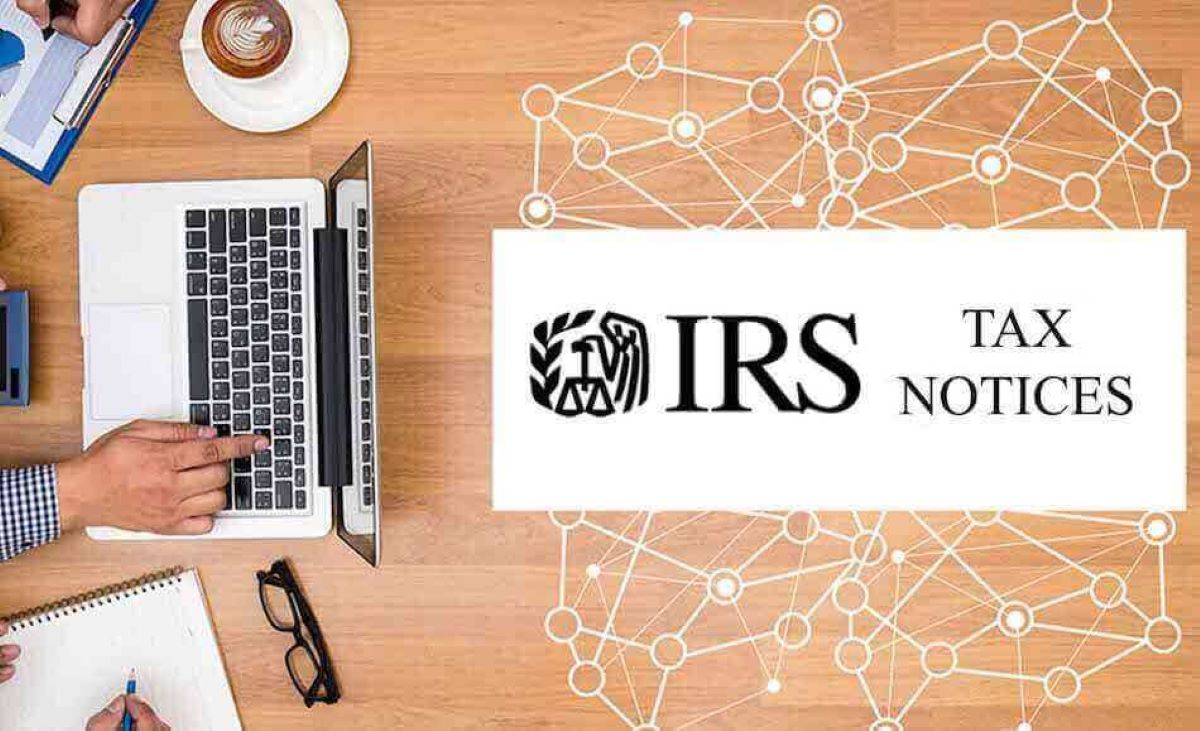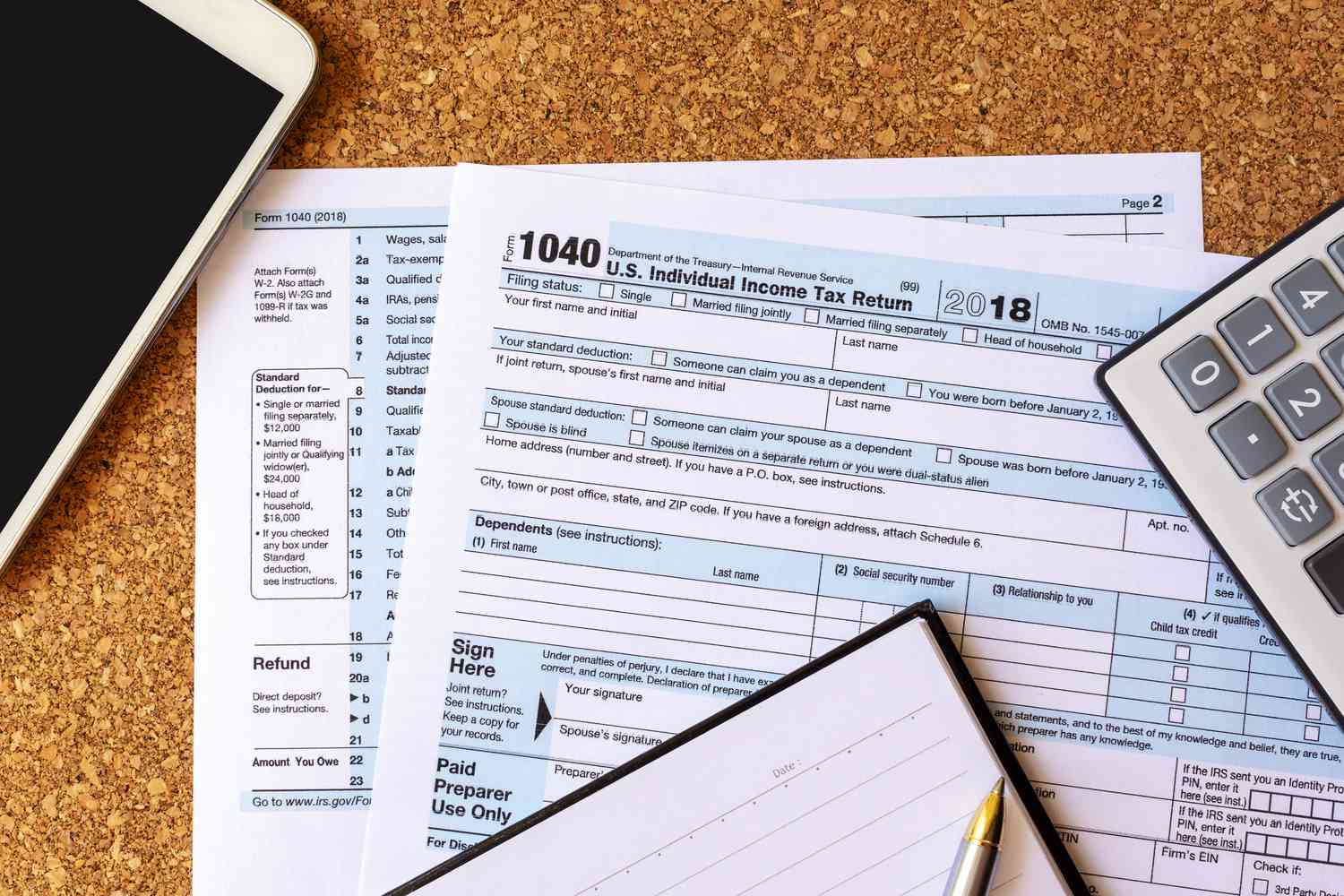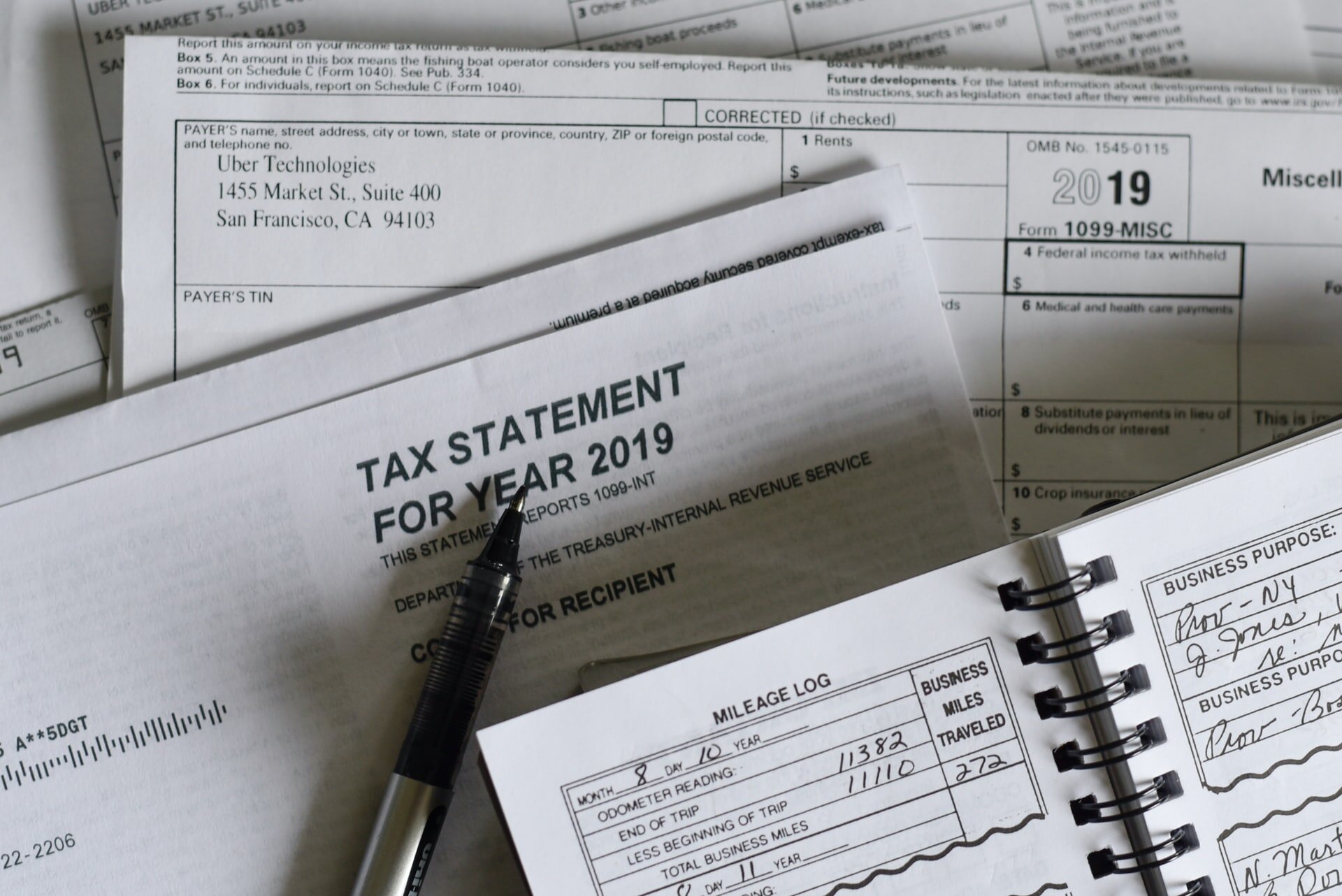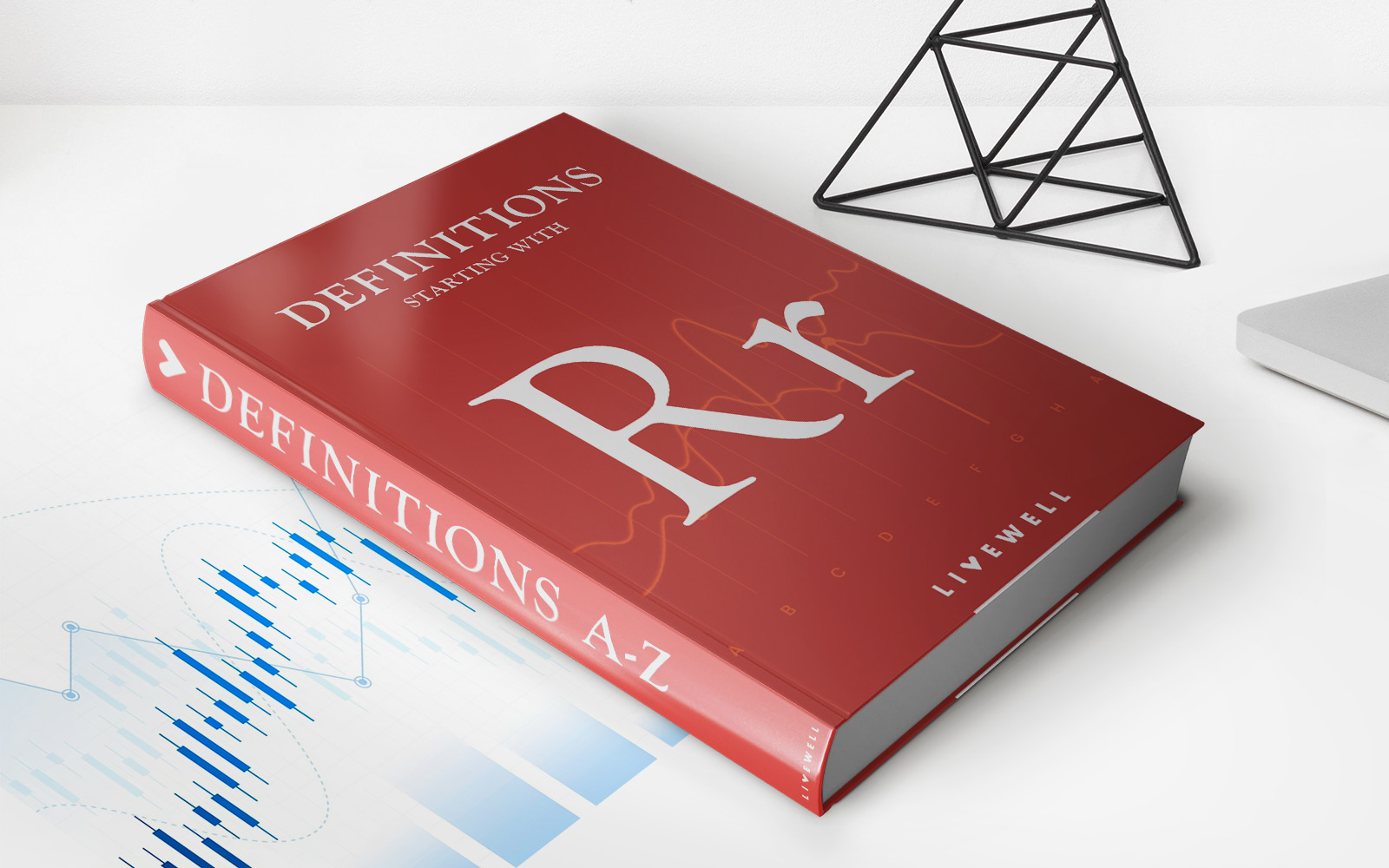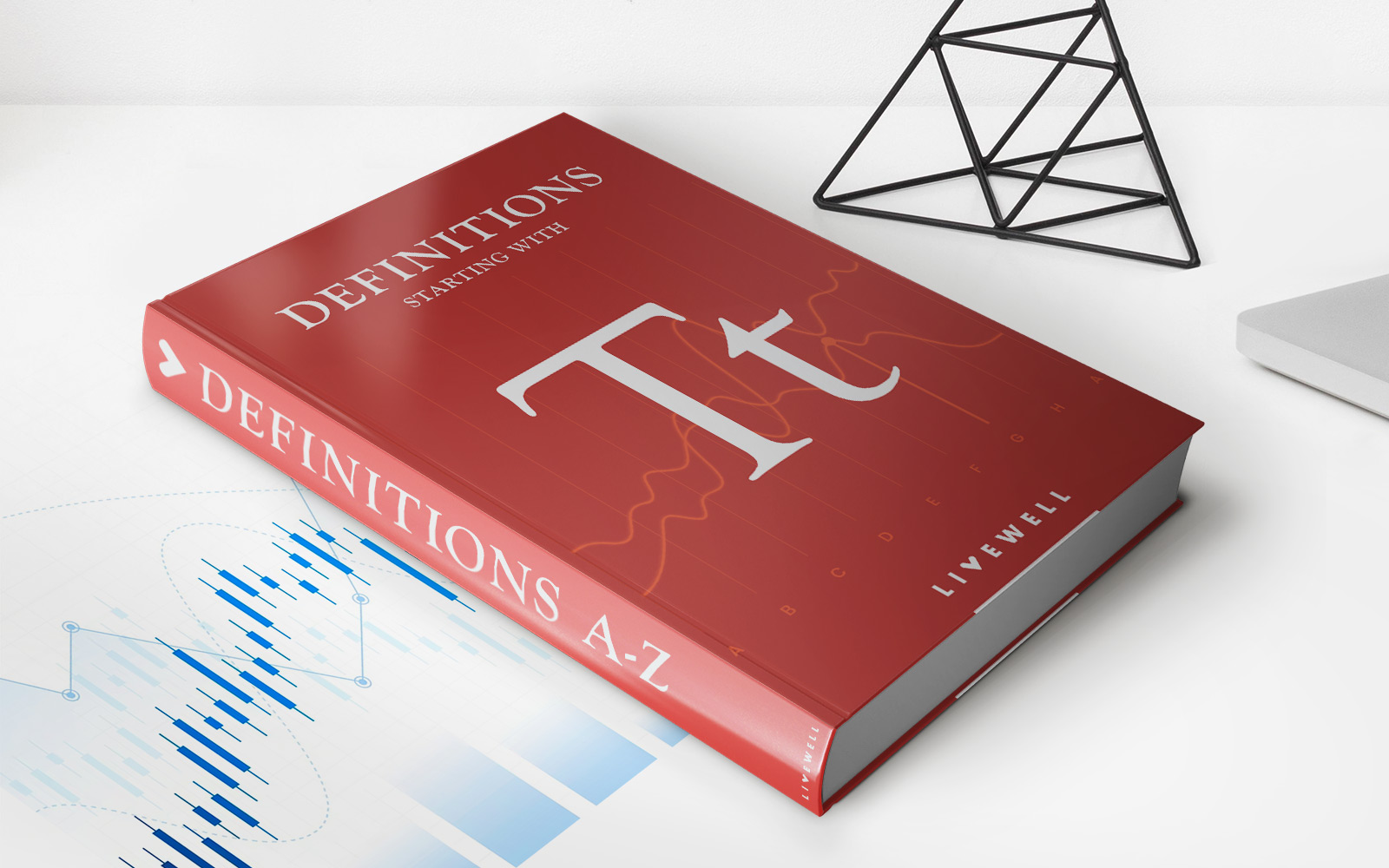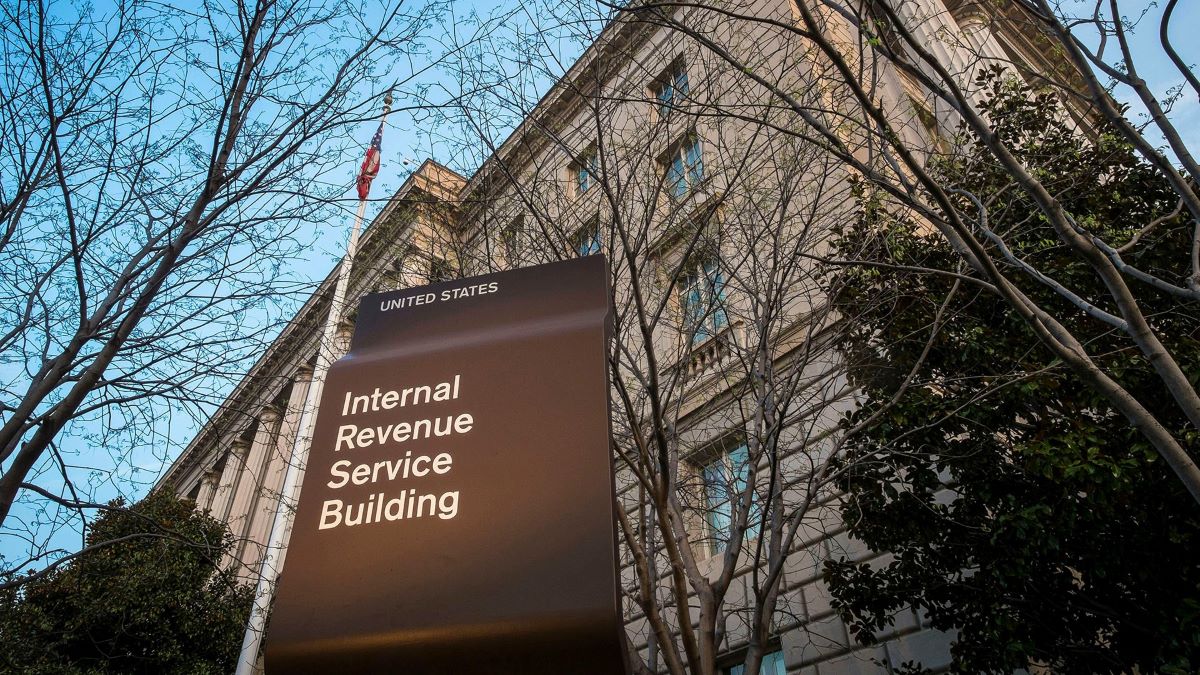

Finance
What Is A Cp12 Notice From The IRS?
Published: October 31, 2023
Learn what a CP12 notice from the IRS means and how it affects your finances. Understand the implications and take necessary steps to resolve any issues promptly.
(Many of the links in this article redirect to a specific reviewed product. Your purchase of these products through affiliate links helps to generate commission for LiveWell, at no extra cost. Learn more)
Table of Contents
Introduction
Have you ever received a CP12 notice from the IRS and wondered what it means? Dealing with tax notices can be overwhelming, especially when you’re unsure about the implications they may have on your financial situation. Understanding the purpose and contents of a CP12 notice is crucial for effectively addressing any issues and ensuring compliance with IRS regulations.
The IRS, or the Internal Revenue Service, is responsible for enforcing tax laws in the United States. One of the ways they communicate with taxpayers is through a variety of notices, such as the CP12 notice. These notices are sent to inform individuals about potential changes to their tax accounts or identify issues that require attention.
In this article, we will provide a comprehensive overview of the CP12 notice, its importance, and the steps you need to take if you receive one. By understanding the key points outlined in this article, you will be better equipped to navigate through the complexities of tax notices and ensure that you address any concerns raised by the IRS.
Overview of IRS Notices
IRS notices are an essential part of the IRS’s communication process with taxpayers. These notices are used to provide information, request additional documentation or payments, and notify individuals about changes in their tax accounts. Understanding the different types of IRS notices can help you navigate through your tax responsibilities and address any issues promptly.
IRS notices are typically sent via mail and are identified by a specific notice number, such as CP12, CP2000, or Letter 4464C. Each notice serves a different purpose and may require a different response from the recipient.
IRS notices can be classified into several categories:
- Informational Notices: These notices provide general information about tax law changes, filing deadlines, or IRS programs. They do not require any action from the recipient but are meant to ensure that taxpayers are aware of important updates.
- Correspondence Notices: These notices are used for routine purposes, such as confirming receipt of documents or requesting additional information to process a tax return. They usually contain specific instructions on how to respond or provide the necessary documentation.
- Examination Notices: These notices are sent when the IRS selects a tax return for examination, also known as an audit. They inform the recipient that their tax return has been flagged for review, and they may be required to provide supporting documents or attend an audit appointment.
- Collection Notices: These notices are sent when a taxpayer has an outstanding balance and has not made the required payments. They provide information about the amount owed, payment options, and potential consequences of non-payment.
- Audit Notices: These notices are similar to examination notices and are sent when the IRS determines that further examination of a tax return is necessary. They typically request specific documentation to support deductions, credits, or other items reported on the tax return.
Understanding the purpose and context of IRS notices is essential for accurately interpreting their contents and taking appropriate action. It is crucial to read and respond to IRS notices promptly to avoid penalties, interest, or further consequences.
Understanding CP12 Notice
One specific type of IRS notice is the CP12 notice. A CP12 notice is generated by the IRS to inform taxpayers of changes made to their tax return after it has been processed. This notice is typically sent when the IRS makes corrections or adjustments to your tax liability, refund amount, or tax credits.
Receiving a CP12 notice does not necessarily indicate that you have done something wrong or that there is an issue with your tax return. It is simply a notification of changes made by the IRS based on information received from third parties, such as employers, financial institutions, or other government agencies.
A CP12 notice may include various types of changes, including adjustments to your income, deductions, or tax credits. The notice will outline the specific changes made, as well as any resulting changes to your tax liability or refund amount.
It is important to carefully review the CP12 notice to ensure that you understand the changes made by the IRS. This will help you determine if the changes are accurate or if there is any missing information that needs to be addressed.
Additionally, a CP12 notice may also indicate that you are due a refund based on the changes made. In such cases, the notice will provide instructions on how to claim your refund, including any necessary forms or documents that need to be submitted.
Overall, a CP12 notice is an important communication from the IRS to inform you of changes made to your tax return. Understanding the details of the changes and following the instructions provided in the notice will ensure that you address any necessary actions and maintain compliance with IRS regulations.
Reasons for Receiving a CP12 Notice
Receiving a CP12 notice from the IRS can be a cause for concern, but it’s important to understand that there are various reasons why you might receive this notice. The IRS issues CP12 notices for a range of situations, often related to adjustments made to your tax return or changes in your tax liability. Let’s explore some of the common reasons for receiving a CP12 notice:
- Income Discrepancies: One of the main reasons for receiving a CP12 notice is when the IRS identifies a discrepancy between the income reported on your tax return and the income reported by your employer or other third-party sources. This could be due to missing or misreported income information, such as wages, interest, dividends, or retirement distributions.
- Deduction Adjustments: The IRS may also issue a CP12 notice if they make adjustments to the deductions you claimed on your tax return. This could include adjustments to expenses related to education, home mortgage interest, medical expenses, or other itemized deductions.
- Tax Credit Changes: If you claimed tax credits on your tax return, such as the Earned Income Tax Credit (EITC) or the Child Tax Credit, and the IRS determines that you are eligible for a different amount, they may send you a CP12 notice with the adjusted credit amount.
- Mathematical Errors: Sometimes, the IRS may identify mathematical errors or inconsistencies in your tax return that result in a change to your tax liability or refund amount. In such cases, they will issue a CP12 notice to inform you of the adjustment.
- Missing Information: If the IRS requires additional information or documentation to support claims made on your tax return, they may send a CP12 notice requesting the necessary documents or explanations.
It’s important to note that receiving a CP12 notice doesn’t necessarily mean you’ve done something wrong. It often indicates that the IRS has made adjustments based on information they received or calculations they performed. However, it is crucial to review the notice carefully, verify the information, and take appropriate action if needed.
By understanding the reasons for receiving a CP12 notice, you can address any potential issues and ensure that your tax return is accurate and compliant with IRS regulations.
Contents of a CP12 Notice
A CP12 notice from the IRS contains important information regarding changes made to your tax return and any resulting adjustments to your tax liability or refund amount. It is crucial to carefully review the contents of the CP12 notice to understand the details of the changes made by the IRS. Here are the key components typically included in a CP12 notice:
- Notice Number: The CP12 notice will have a unique notice number located at the top of the document. This number helps identify the specific notice and is important to reference in any communication with the IRS.
- Date Issued: The notice will include the issuance date, which indicates when the IRS generated and sent the CP12 notice to you.
- Explanation of Changes: The CP12 notice will provide a detailed explanation of the changes made by the IRS to your tax return. This could include adjustments to your income, deductions, or tax credits. The notice will outline the specific changes made and the corresponding impact on your tax liability or refund amount.
- New Tax Liability or Refund Amount: The CP12 notice will clearly state your new tax liability if you owe additional taxes or your new refund amount if you are eligible to receive a refund. The notice will explain any differences between the original figures you reported on your tax return and the adjusted figures determined by the IRS.
- Payment Instructions: If your new tax liability results in additional taxes owed, the CP12 notice will provide instructions on how to make the payment. It will specify the payment due date and provide options for payment methods, such as online payment, check, or money order.
- Refund Claim Instructions: If you are entitled to a refund based on the changes made by the IRS, the CP12 notice will provide instructions on how to claim your refund. This may involve submitting additional forms or documents to support your refund claim.
- Contact Information: The CP12 notice will include relevant contact information, such as a phone number or address, for the IRS office handling your case. If you have questions or need further assistance, you can reach out to the IRS using the provided contact details.
It is essential to carefully review all the information provided in the CP12 notice to ensure that you understand the changes made by the IRS and the necessary actions you need to take. If you have any doubts or need clarification, it is recommended to contact the IRS for assistance.
Actions to Take after Receiving a CP12 Notice
Receiving a CP12 notice from the IRS requires prompt action and attention to address the changes made to your tax return. It is crucial to take the following actions after receiving a CP12 notice:
- Review the Notice: Carefully read through the CP12 notice to understand the changes made by the IRS and the impact on your tax liability or refund amount. Pay close attention to the explanations provided and verify the accuracy of the adjustments made.
- Compare with Original Return: Compare the information in the CP12 notice with the figures you originally reported on your tax return. Ensure that all income, deductions, and tax credits are accurately reflected in the notice. If you notice any discrepancies or errors, gather the supporting documents and records to substantiate your claims.
- Take Note of Deadlines: Note any deadlines mentioned in the CP12 notice, including due dates for payments or submission of additional documentation. Failing to meet deadlines may result in penalties, interest, or other adverse consequences.
- Make Payments if Required: If the CP12 notice indicates that you owe additional taxes, make the payment by the specified due date. Follow the payment instructions provided in the notice, such as submitting the payment electronically or sending a check or money order. Prompt payment will help avoid further penalties and interest charges.
- Claim Your Refund: If the CP12 notice states that you are eligible for a refund based on the adjustments made by the IRS, ensure that you follow the refund claim instructions provided. This may involve completing and submitting additional forms or documents to support your refund claim.
- Keep Documentation: Maintain copies of the CP12 notice, any supporting documents, and any correspondence related to the notice. These records will be crucial for your reference and in case of any future inquiries or audits by the IRS.
- Seek Professional Help if Needed: If you are unsure about how to navigate the CP12 notice or need assistance with resolving any issues, consider seeking help from a tax professional or a certified public accountant (CPA). They can provide guidance, review your tax situation, and help you respond to the notice appropriately.
- Respond in a Timely Manner: If you need to respond to the CP12 notice with additional information or clarification, make sure to do so within the specified time frame. Timely and accurate responses will help facilitate the resolution of any issues and prevent further complications.
By taking these crucial actions after receiving a CP12 notice, you can address the adjustments made by the IRS and ensure compliance with your tax obligations. Don’t hesitate to seek professional assistance if needed, as it can provide you with valuable insights and guidance throughout the process.
How to Respond to a CP12 Notice
When you receive a CP12 notice from the IRS, it is important to respond in a timely and appropriate manner. Here are the steps to follow when responding to a CP12 notice:
- Read the Notice Carefully: Begin by thoroughly reading the CP12 notice to understand the changes made by the IRS and the specific instructions provided. Pay attention to any deadlines mentioned in the notice.
- Gather Supporting Documents: If you believe that the changes made by the IRS are incorrect or if you have additional documentation to support your claims, gather all relevant records and supporting documents before responding. This may include income statements, deduction receipts, or other relevant documentation.
- Prepare a Response: Based on your understanding of the changes made, prepare a response to the CP12 notice. This may involve providing an explanation for discrepancies, submitting missing information, or disputing the adjustments made by the IRS.
- Fulfill Documentation Requests: If the CP12 notice requests specific documents or forms, ensure that you include them in your response. Use certified mail or other reliable methods to send all requested information to the IRS to ensure a documented proof of submission.
- Respond by the Deadline: It is crucial to respond to the CP12 notice by the specified deadline. Failure to meet the deadline may result in further penalties, interest, or other consequences. If you are unable to gather the necessary information or respond in time, consider requesting an extension from the IRS.
- Keep Copies of Correspondence: Make copies of your response, all supporting documents, and any correspondence sent to or received from the IRS. This will serve as a record of your communication and can be useful in case of any future inquiries or audits.
- Follow Up if Necessary: After submitting your response, monitor the progress of your case. If you have not received a response or resolution within a reasonable timeframe, consider reaching out to the IRS for an update or seeking assistance from a tax professional.
Remember to remain organized, calm, and responsive throughout the process. Providing clear and complete information, along with supporting documentation, strengthens your case and increases the likelihood of a favorable outcome.
If you are unsure about the appropriate response or need assistance with handling the CP12 notice, it is recommended to seek guidance from a tax professional or a certified public accountant (CPA). They have the expertise to help you navigate the situation and ensure that your response is accurate and effective.
Resolving Issues with a CP12 Notice
Resolving issues with a CP12 notice from the IRS requires proactive steps and clear communication. If you believe there is an error or discrepancy in the adjustments made by the IRS, follow these steps to address and resolve the issues:
- Review the Notice: Carefully review the CP12 notice to understand the changes made by the IRS and the explanations provided. Ensure that you have a clear understanding of the adjustments and how they impact your tax liability or refund amount.
- Gather Documentation: Collect all relevant documentation to support your case. This may include original tax return documents, supporting statements, receipts, or other evidence that substantiates your claims.
- Consider Professional Assistance: If resolving the issue seems complex or overwhelming, consider seeking professional assistance from a tax professional or a certified public accountant (CPA). They can provide guidance, review your situation, and assist in preparing a response to the IRS.
- Prepare a Response: Based on your review of the CP12 notice and the supporting documentation, prepare a written response to the IRS. Clearly explain the discrepancies or errors you believe exist and provide a detailed explanation, referencing the relevant information and documents.
- Submit the Response: Send your response to the IRS by certified mail or through an online platform, if available. Keep copies of all correspondence and supporting documents for your records.
- Follow Up: After submitting your response, follow up with the IRS to confirm they received your response and are addressing the matter. Maintain a record of all communication, noting the date, time, representatives spoken to, and any reference numbers provided.
- Provide Additional Information if Requested: If the IRS requests further information or documentation, promptly comply with their request. Be sure to supply all requested materials in a timely manner to avoid delays in the resolution process.
- Escalate if Necessary: If you believe your case requires further attention or if you encounter difficulties in resolving the issue, consider escalating your case within the IRS. This can involve contacting a supervisor or seeking assistance from the Taxpayer Advocate Service, an independent organization within the IRS that helps taxpayers navigate complex issues.
Resolving issues with a CP12 notice requires patience, persistence, and clear communication with the IRS. By following these steps and seeking professional assistance when needed, you can work towards a resolution that is fair and accurate.
Frequently Asked Questions about CP12 Notices
Here are some common questions and answers regarding CP12 notices:
-
What does a CP12 notice mean?
A CP12 notice is sent by the IRS to inform taxpayers of changes made to their tax return after processing. It explains the adjustments made and any resulting changes to your tax liability or refund amount.
-
Why did I receive a CP12 notice?
You may receive a CP12 notice if the IRS made changes to your tax return based on information received from third parties, such as your employer or financial institutions. It could be due to discrepancies in reported income, deductions, or tax credits.
-
Should I be worried if I receive a CP12 notice?
Receiving a CP12 notice does not necessarily indicate a problem. It is simply a notification of changes made to your tax return. Review the notice carefully to understand the adjustments made and take appropriate action if needed.
-
What should I do if I disagree with the changes in the CP12 notice?
If you believe there is an error in the adjustments made by the IRS, gather supporting documentation and prepare a written response explaining your position. Submit your response to the address provided in the notice and follow up with the IRS to resolve the issue.
-
How long do I have to respond to a CP12 notice?
The CP12 notice will specify a deadline for response. It is crucial to respond within the given timeframe to avoid penalties or further complications. If you need additional time, consider requesting an extension from the IRS.
-
What happens if I owe more taxes according to the CP12 notice?
If the CP12 notice indicates that you owe additional taxes, follow the payment instructions provided in the notice and submit your payment by the specified due date. Failure to pay could result in penalties and interest charges.
-
Can I claim a refund if the CP12 notice shows an increase in my refund amount?
If the CP12 notice indicates that you are eligible for a larger refund, follow the refund claim instructions provided. This may involve submitting additional forms or documentation to support your claim.
-
What if I don’t understand the CP12 notice?
If you have difficulty understanding the CP12 notice or need clarification, consider seeking assistance from a tax professional or a certified public accountant (CPA). They can help you interpret the information in the notice and guide you through the necessary steps.
These are general answers to frequently asked questions about CP12 notices. It’s important to consult the specific instructions and details provided in your CP12 notice for accurate information regarding your situation.
Conclusion
Receiving a CP12 notice from the IRS can be intimidating, but understanding its purpose and taking appropriate action is crucial. In this article, we have explored the different aspects of a CP12 notice, including its contents, reasons for receiving it, and steps to respond effectively.
When you receive a CP12 notice, carefully review the adjustments made by the IRS and compare them with your original tax return. If you believe there is an error or discrepancy, gather supporting documentation and prepare a written response to address your concerns.
Timely responses, payment of any additional taxes owed, and claiming refunds if eligible are essential steps in resolving the issues highlighted in a CP12 notice. Effective communication with the IRS and maintaining organized records of all correspondence are key in navigating through the process.
If you encounter difficulties or feel overwhelmed, consider seeking assistance from a tax professional or CPA who can provide guidance and help you address the situation. Their expertise and knowledge can be invaluable in ensuring a satisfactory resolution.
Remember, receiving a CP12 notice does not necessarily imply wrongdoing on your part. It is an opportunity to review and address any adjustments made to your tax return, ensuring compliance with IRS regulations.
By understanding the contents of a CP12 notice, the reasons for receiving it, and the necessary steps to respond, you can navigate this process with confidence and ensure that your tax affairs are in order.
Keeping abreast of your tax situation and promptly addressing any notices received from the IRS will help you maintain compliance and financial peace of mind. Stay proactive and informed, and reach out for professional help when needed.


